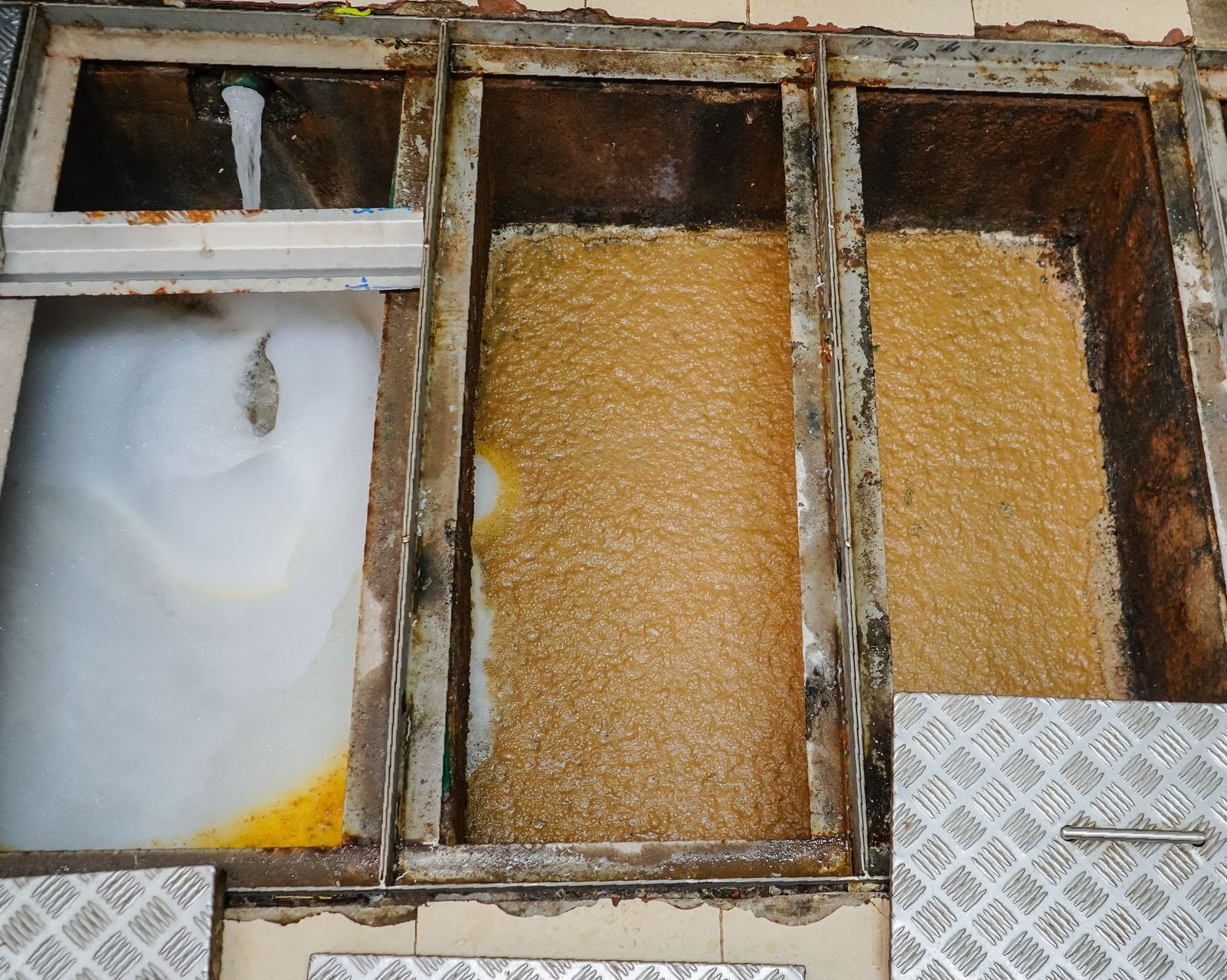Top 10 Benefits of Recycling Your Used Cooking Oil
Welcome to our exploration into the transformative world of oil recycling. In this piece, we're delving into the myriad benefits this practice offers, particularly in the context of the United States. Oil recycling isn't just an environmentally conscious choice; it's a crucial action with widespread implications.
1. Environmental Protection
The journey of oil recycling starts with its immense contribution to environmental protection. Imagine this: a single gallon of oil, if not properly disposed of, can contaminate a million gallons of fresh water. This statistic isn't just alarming; it highlights the catastrophic impact of oil pollution, a challenge that the U.S. continues to confront. Recycling oil is a formidable defense against this threat, transforming potential environmental disasters into opportunities for preservation.
But the benefits of oil recycling extend beyond pollution prevention. It's also about conserving a precious commodity. In a nation where natural resources are heavily utilized, the ability to reuse oil reduces the need for new extraction, aligning perfectly with sustainable resource management practices.
Moreover, the implications of oil misuse on wildlife cannot be overlooked. Oil spills and improper disposal have devastating effects on marine life and birds, disrupting ecosystems and threatening biodiversity. The act of recycling oil, therefore, becomes more than just an environmental gesture; it's a necessary step in safeguarding the natural inhabitants of our planet.
In the U.S., strides have been made in terms of regulations and public awareness regarding oil recycling. However, there remains a significant journey ahead. Each state, community, and individual holds a piece of the puzzle in creating a sustainable future. Through collective effort and a commitment to oil recycling, the path towards a cleaner and healthier environment becomes clearer.
2. Reduction of Health Risks
Moving on to another critical benefit of oil recycling: the substantial reduction of health risks. The danger posed by improperly disposed oil cannot be overstated. In the United States, where industrial and residential areas often coexist, the repercussions of oil contamination are both immediate and far-reaching.
Toxic chemicals from used oil seeping into the soil and water sources pose a significant threat. These contaminants, once introduced into our ecosystems, can have devastating effects on both human health and wildlife. For humans, exposure to these toxins can result in a range of health issues, from skin irritations to more serious diseases. The impact extends to the animal kingdom too, affecting the health of birds and other wildlife.
In this context, oil recycling serves as a critical line of defense. By ensuring that used oil is processed correctly, we prevent these harmful chemicals from entering our environment. This is especially crucial in a country as vast as the U.S., where the effects of pollution can be both widespread and long-lasting.
3. Economic Benefits
The economic benefits of oil recycling are another compelling aspect. In the realm of job creation, the oil recycling industry is a notable contributor. This sector spans various operations, including collection, processing, and refining. Each phase requires skilled labor, offering employment opportunities and contributing to the economy. The industry's role in the U.S. is particularly significant, given its large market and extensive industrial activities.
Moreover, recycling oil can lead to substantial cost savings. The process of re-refining used oil is generally more cost-effective than extracting and processing new oil. This efficiency translates into economic benefits not just for the oil industry but for consumers as well. Businesses, especially those with large-scale operations, can see reduced costs in their operations, savings that can be passed on to consumers.
The financial impact of oil recycling extends beyond direct savings. It also involves the reduced environmental cleanup costs associated with oil spills and contamination. In the United States, where environmental regulations are stringent, the cost of non-compliance can be high. Recycling helps businesses avoid these costs, contributing to a more economically sustainable model of operation.
4. Energy Efficiency
Energy efficiency is yet another pivotal benefit of recycling oil. This aspect is particularly relevant in the context of the United States, a nation with one of the highest energy consumption rates in the world. Recycling oil is significantly more energy-efficient than extracting and refining new oil. This efficiency is not just a matter of resource conservation; it also translates into reduced greenhouse gas emissions.
The process of re-refining used oil to produce new lubricants and other products consumes far less energy compared to processing crude oil. This reduction in energy use is crucial in the broader context of combating climate change and reducing our carbon footprint. For a country committed to environmental sustainability and looking to lead in climate change mitigation, these energy savings are of immense importance.
Furthermore, the efficient use of energy in oil recycling supports the U.S. in its goal of achieving energy independence. By relying less on the production of new oil, the country can move towards a more sustainable and self-reliant energy strategy. This shift not only has environmental benefits but also geopolitical and economic implications, reinforcing the importance of energy efficiency in the national agenda.
Oil recycling, therefore, is not just an environmental or economic issue; it's a crucial component in the U.S.'s energy strategy, aligning with national goals of sustainability and energy independence.
5. Conservation of Resources
Resource conservation is another key benefit of oil recycling, especially in a resource-intensive country like the United States. Oil is a finite resource, and every effort to recycle and reuse it contributes to preserving this valuable commodity. By recycling used oil, we're essentially giving it a new life, allowing it to be used again in various forms, whether as lubricants, fuel, or in other industrial applications.
This approach to resource management is particularly critical in the U.S., where the demand for oil is among the highest in the world. The more oil we recycle, the less we need to extract from the earth. This not only helps in conserving the natural reserves of oil but also reduces the environmental impact associated with oil extraction, such as land degradation and biodiversity loss.
Furthermore, the practice of recycling oil supports the broader concept of a circular economy, where waste is minimized, and resources are reused as much as possible. This concept is gaining traction in the U.S., driven by the increasing awareness of the need for sustainable resource management. Oil recycling fits perfectly into this model, showcasing how traditional waste can be transformed into a valuable resource.
The conservation of oil through recycling is, therefore, not just an environmental imperative but also a strategic approach to managing the nation's resources more sustainably and efficiently.
6. Reduction in Greenhouse Gas Emissions
The reduction of greenhouse gas emissions is a crucial benefit of oil recycling, particularly in the context of the United States' commitment to environmental sustainability. When used oil is recycled and re-refined, it significantly cuts down on the greenhouse gas emissions compared to the process of refining crude oil. This reduction is vital in the fight against climate change.
In the U.S., where industrial and vehicular emissions contribute heavily to the overall greenhouse gas footprint, oil recycling becomes an effective tool in reducing these emissions. Each gallon of oil that is recycled and reused means one less gallon contributing to the carbon emissions from oil refining processes. This is not just beneficial for the environment but also aligns with national and global goals to combat climate change.
Moreover, the U.S.'s efforts to reduce its greenhouse gas emissions are closely watched on the global stage. By prioritizing and enhancing oil recycling practices, the country not only takes a step forward in its own sustainability goals but also sets an example for other nations to follow. This leadership in environmental stewardship is essential for global efforts in reducing greenhouse gas emissions.
Oil recycling, therefore, plays a significant role in the broader context of environmental protection, demonstrating the interconnectedness of local actions and global environmental goals.
7. Compliance with Regulations
In the United States, compliance with environmental regulations is a critical aspect of industrial and commercial operations, and oil recycling plays a significant role in this regard. Proper recycling and disposal of used oil are mandated by various federal and state regulations. By engaging in oil recycling, businesses and individuals ensure they are in compliance with these laws, avoiding potential fines and legal repercussions.
The regulations surrounding oil disposal and recycling are designed not just to protect the environment but also to safeguard public health and ensure sustainable business practices. In a country where environmental laws are becoming increasingly stringent, the role of oil recycling in meeting these regulatory standards cannot be understated.
Additionally, recycling used oil helps businesses and organizations demonstrate their commitment to environmental responsibility. This can enhance their reputation and align them with consumers' growing preference for environmentally conscious companies. In the U.S. market, where consumer awareness about environmental issues is high, this can be a significant advantage.
Thus, oil recycling is not only a matter of legal compliance but also a strategic business practice that aligns with both regulatory requirements and consumer expectations.
8. Versatility in Applications
The versatility in applications of recycled oil is a significant benefit, particularly in the diverse U.S. market. Recycled oil isn't limited to a single use; it finds its way into various applications, enhancing its value. Once recycled, oil can be used in the production of new lubricants, transformed into fuel for heating and power, or used in other industrial processes. This versatility not only makes oil recycling economically viable but also promotes innovation in how we reuse resources.
In the United States, where industrial innovation is a cornerstone of economic growth, the ability to find multiple uses for recycled oil aligns with the ethos of efficiency and creativity. For instance, re-refined oil that meets quality standards can be just as effective as virgin oil for use in vehicles, machinery, and other equipment. Additionally, recycled oil is often used in power plants and industrial boilers, contributing to energy production.
This multifaceted use of recycled oil showcases the potential of recycling initiatives to contribute to a more sustainable and resource-efficient economy. It highlights how a product traditionally viewed as waste can be transformed into a valuable resource, contributing to various sectors.
9. Prolonged Oil Life
The concept of prolonging the life of oil through recycling is a key benefit, especially in a consumption-heavy society like the United States. Contrary to common belief, motor oil doesn’t "wear out"; it just becomes dirty. Through the recycling process, the oil can be cleaned and re-refined, making it suitable for reuse. This extends the life of the oil, ensuring that it can be used repeatedly instead of being replaced frequently.
In the U.S., where large quantities of oil are used daily in various sectors, the ability to extend the life of oil significantly reduces the demand for new oil production. This not only conserves the natural resource but also minimizes the environmental impact associated with oil extraction and refining.
The practice of recycling and reusing oil exemplifies a sustainable approach to resource management. It demonstrates how we can effectively reduce waste and maximize the utility of resources in a circular economy. This is particularly relevant in the U.S., where the shift towards sustainability is increasingly becoming a priority for both businesses and consumers.
10. Encouraging Sustainable Practices
The final, yet equally important benefit of oil recycling is its role in encouraging sustainable practices. In the United States, a growing awareness and commitment to environmental sustainability is reshaping how industries and individuals approach resource use. Oil recycling stands as a prime example of this shift. It not only addresses the immediate need for waste management but also fosters a broader culture of sustainability.
By participating in oil recycling, businesses and consumers are contributing to a more sustainable future. This practice serves as an educational tool, highlighting the importance of resource conservation and environmental stewardship. It encourages individuals and organizations to think more critically about their environmental impact and to seek out ways to reduce their carbon footprint.
In a country that is both a major consumer and a leader in environmental innovation, the U.S. has the unique opportunity to set a
global standard for sustainable practices. Oil recycling is a tangible action that contributes to this leadership, demonstrating a commitment to a healthier planet and a more sustainable future for generations to come.
Conclusion
For those in Boise, ID, Idaho Falls, ID, and La Grande, OR, engaging in responsible oil recycling practices is now more accessible than ever, thanks to Eco of Idaho. This company offers a comprehensive suite of services designed to make recycling both convenient and cost-effective.
Eco of Idaho specializes in services such as Grease Trap Cleaning and Oil Collection, Cooking Oil Collection, Grease Trap Pumping, and Bulk Waste Water Transport. Their approach is not only environmentally responsible but also incredibly affordable. By choosing Eco of Idaho, you're not just making an environmentally sound decision; you're also opting for an economically wise one.
One of the standout features of Eco of Idaho is the convenience they offer. With just one call, you can access several essential services. This streamlined approach saves time and hassle, making it easier for businesses and individuals to commit to sustainable practices. Moreover, the discounted Grease Trap service, made possible because of their ability to sell cooking oil, presents an opportunity for additional savings.
To learn more about Eco of Idaho and how they can help you with your oil recycling needs, visit their website or give them a call. It's a small step that can have a big impact on both your local environment and the broader global effort towards a more sustainable future.










